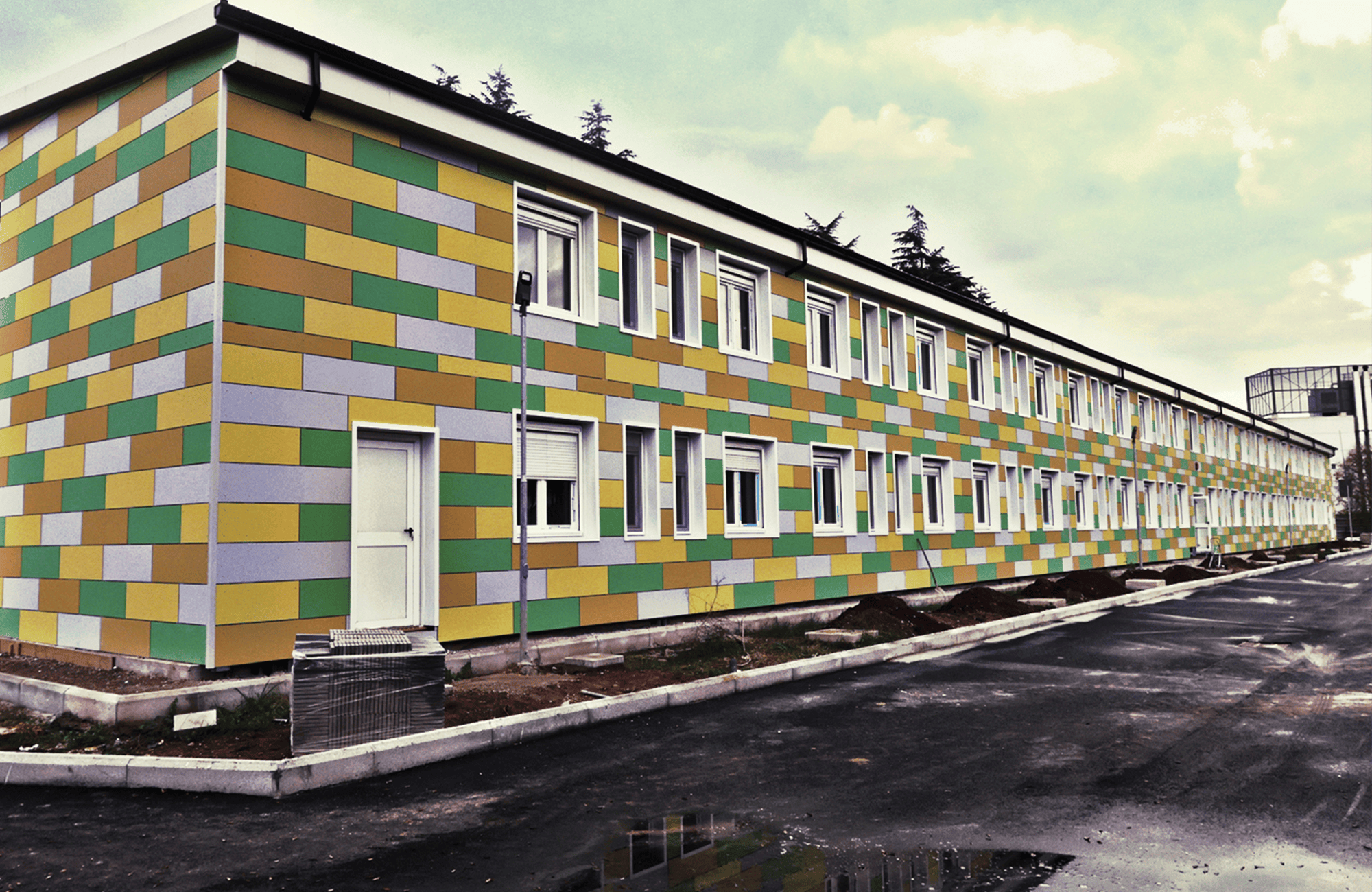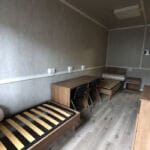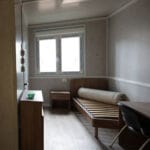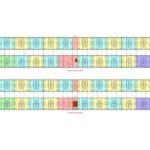Dormitory in Rome
Company: RI SpA
Location: Rome, Lazio, Italy
Gross Size of Project: 25,833 Square Feet
Days to Complete: 150
Award Criteria
Architectural Excellence
The 152-bed residential military building has been constructed using prefabricated modules (19,8 x 8 ft) thoughtfully configured to provide essential services, communal spaces, and accommodations. With a covered area of approximately 12500 sqft the structure balances functionality and aesthetics. The building incorporates a ventilated façade with thermal insulation, clad in colored fiber cement tiles with variable dimensions, creating a harmonious chromatic effect that integrates with the surroundings. Strategic placement and design of the modules ensure optimal air quality and climate control. Modular corridors, living areas, and fire-rated structures enhance safety, usability, and visual appeal, delivering an exemplary blend of planning and design excellence.
Technical Innovation & Sustainability
The project adopts advanced modular construction techniques, optimizing efficiency while minimizing environmental impact. Prefabrication ensures precision, quality, and reduced waste during construction. A ventilated façade system with thermal insulation enhances energy efficiency, while photovoltaic panels on the roof power the heat pump-based climate system, further reducing carbon emissions. All utility systems are integrated within the cavity between prefabricated modules and the external ventilated façade, streamlining maintenance. By combining green technologies with innovative construction methods, the building exemplifies sustainable development and user-centric design.
Cost Effectiveness
Prefabricated modules reduce onsite labor costs, shorten construction timelines, and minimize material waste. The ventilated façade, using durable fiber cement tiles, and the fire-resistant materials provide long-term resilience, lowering maintenance expenses. Photovoltaic panels offset energy costs, while the centralized climate system enhances operational efficiency. Modular configurations allow scalability and adaptability for future needs, maximizing long-term value. Collaborative sourcing of sustainable materials ensures affordability without compromising quality or performance, delivering a cost-effective solution for users.
See More Awards of Distinction Winners
To view all our current honorees, visit our main Awards page.




